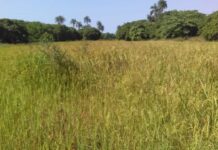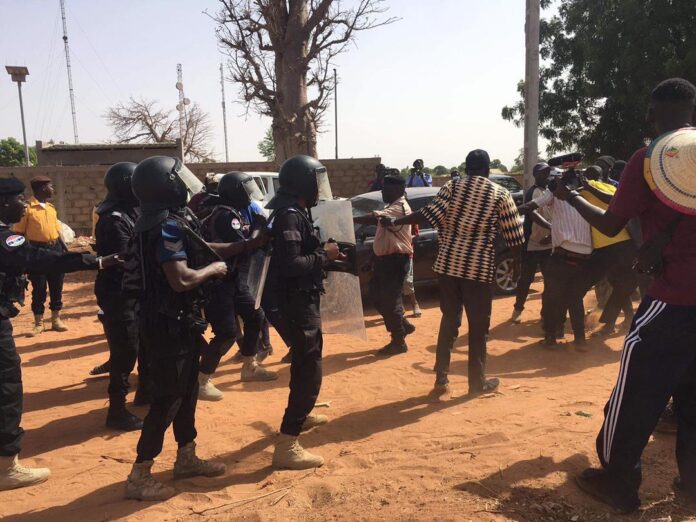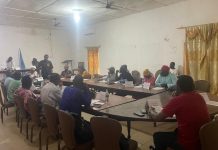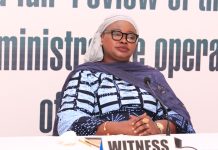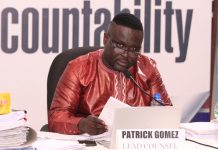By Mustapha Jallow / Assan Bah
In an ongoing effort to empower security agencies and local stakeholders to effectively respond to large-scale population movement, the UN’s Migration organisation IOM in partnership with the National Disaster Management Agency (NDMA), on Saturday May 7th 2022 carried out disaster outbreak simulation exercise in Kerr Ali, on the Gambia’s northern border with Senegal.
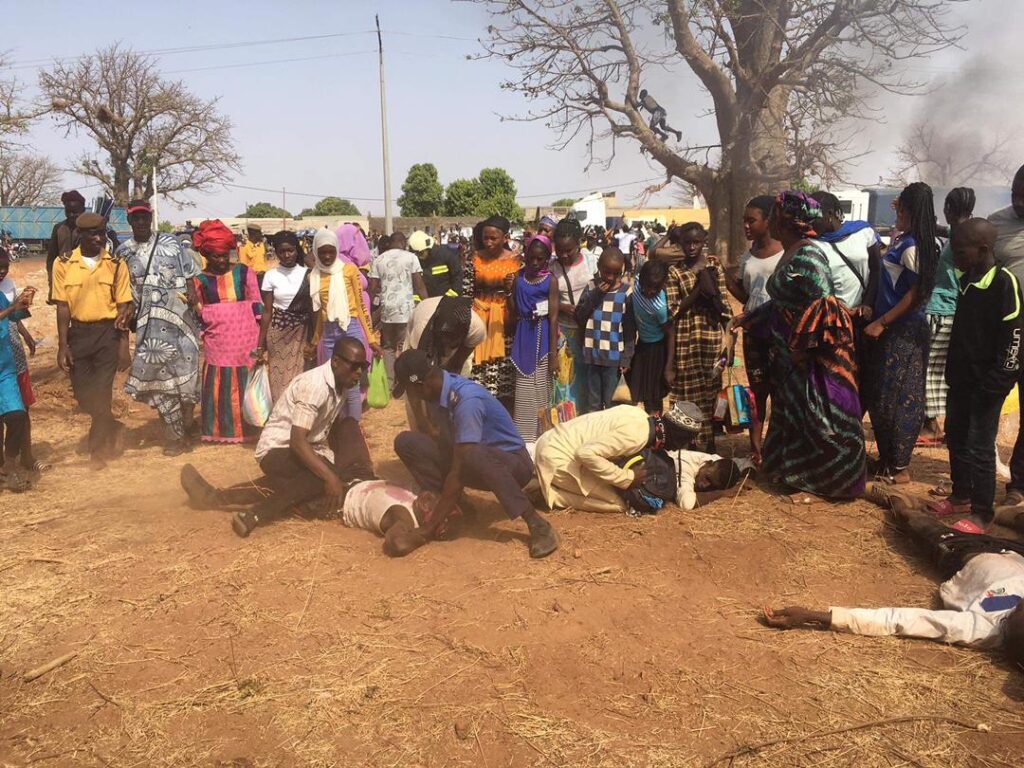
The exercise was designed to strengthen and assess the human and material capacities of the different stakeholders involved during disaster ranging from hazards including floods, windstorms, fire outbreak, oil spill and pollution, especially local communities. The simulation exercise which was supported by IOM through the Government of the United States of America, aims to highlight the dynamics between human rights protection, assistance to vulnerable persons and state security in rural communities, during times of crisis.
As with previous exercises, the simulation used a scenario of real-life circumstances to test local and regional authorities’ ability to respond to disaster and mass migration movements into Gambia, precipitated by a crisis within the border.
During the exercise, gaps were created to test the crowd control sfforts of fire fighters, Red Cross volunteers, immigration and other law enforcement officers who are the main community actors, followed by an analysis of existing response mechanisms and resulting feedbacks for the development of an emergency plan for rural communities along the Gambia’s borders.
The outbreaks of such hazards have led to loss of lives and livelihoods, low agricultural productivity, environmental degradation and mass movement or displacement of the local population.
Although the national contingency plan addresses numerous forms of disaster incidents, it does not however address the mobility dimension of such a crisis, nor did it consider the needs of the vulnerable population such as women and children.
The exercise has identified gaps in the national contingency plan and environmental migration challenges, triggering the need for a national simulation exercise to test the practical application of new contingency plans and to gauge Government’s response to migration flows in case of crisis.
The exercise was witnessed by border security forces both senior and junior such as Police, Immigration, Fire and Rescue Service, National Intelligence Agency, Customs and health officers as well as local community members.
Speaking at Farafenni hospital after conclusion of the exercise, Sering Modou Joof, deputy director of NDMA said lack of proper roads in easily assessing villagers during disaster, are the main issues affecting both local authorities and community members. He pointed out the gaps from fire service officers for failing turn out on time to put out fire outbreaks and said immigration and red cross volunteers were not available on time due mobility problems. He asked local forces to respect time, stating that this is very important during the hours of operations.
“So NDMA as an institution is not only here to respond to disasters but to prepare the mindset of the masses so that they can take their rightful position in society. Disaster prevention and mitigation should be everyone’s business. I can be affected today but someone may be affected tomorrow,’’ Joof remarked.
According to him, it is a collective responsibility to educate each other on preparedness action so that coordinators can be helped in executing their duties.
George Andrews, IOM’s programme assistant said when disaster occurs, there will be movement of the people from homes in search of safer places, saying the exercise will help locals on how to manage and prevent further conflict.
Musa Kanteh, deputy Governor for North Bank Region (NBR) described the exercise as a national development, where every citizen should participate. He said gaps were seen during the exercise but urged community members and local security forces to communicate and work hand-in-hand. The Governor further urge other security agencies who have mobility issues to express their problems so that it can be solved. He called on IOM and partners to re-organize similar simulation exercises across the nation.
Papa Tunkara, a Councilor in Farafeni thanked organizers, partners and participants for making the event successful, and urged everyone to share the lessons learnt with their colleagues who were not able to attend.
Hygiene kits were distributed to participating community members at the end of the exercise.






